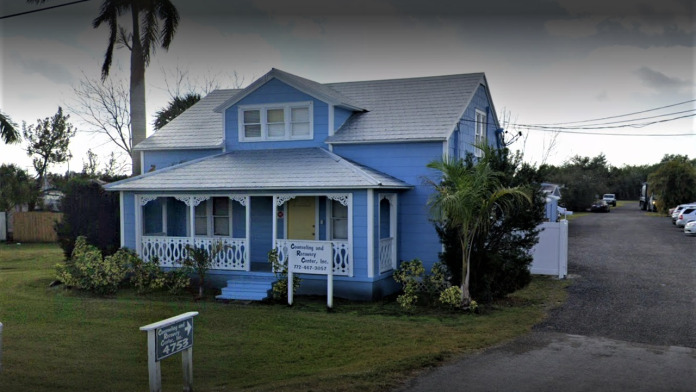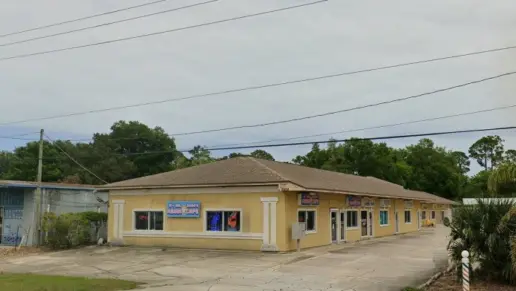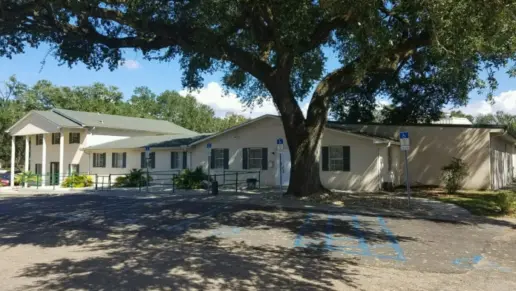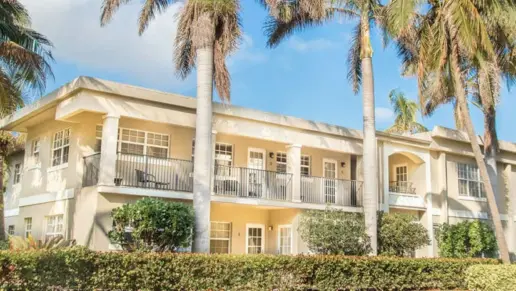have not been called back.I have been asking how my love one is doing,and how I may be of help,I have been told that there is a problem with out going mail,I pray some one wil call.
About Counseling and Recovery Center
Located in Fort Pierce, Florida, the Counseling and Recovery Center offers a wide range of services to people struggling with addiction and mental health issues. They provide screenings, assessments and guidance to ensure that each person receives the appropriate treatment for substance use problems. The center focuses on a recovery model that gives clients the tools needed to manage both substance use and co occurring disorders.
Multiple Outpatient Program Levels
For women dealing with addiction, this center has a day treatment program that provides group therapy to build skills and create connections. They also offer outpatient counseling, which includes individual and group sessions, giving people flexibility as they work on recovery from addiction.
Long Term Addiction Recovery Support
To help people stay on track after their treatment, the facility also provides aftercare services that support long term recovery. They also offer medication-assisted treatment, which combines therapy with approved medications to ease the process. For those who want more education, they run substance use groups for both men and women. These sessions give people useful tools and knowledge to better understand recovery.
Addiction Care That’s Accessible and Comprehensive
With transportation services available, clients can be sure they won’t miss out on critical recovery sessions. Peer support connects them to mentors who have firsthand experience with addiction. Mental health needs are addressed through psychiatric evaluations, and the staff is there to guide clients with care and respect. Interpreter services are available for those who are deaf or hard of hearing, completely free of charge.
Latest Reviews
Rehab Score
Gallery

Location
Other Forms of Payment
Medicaid is a state based program that helps lower-income individuals and families pay for healthcare. Medicaid covers addiction treatment so those enrolled can use their coverage to pay for rehab. When a program accepts Medicaid the client often pays very little or nothing out of their own pocket.
Self-pay involves paying for treatment out of your own pocket. You can use savings or credit, get a personal loan, or receive help from family and friends to fund your treatment. If you don't have insurance or your insurance plan doesn't cover a specific program, self-pay can help ensure you still get the care you need.
Financial aid can take many forms. Centers may have grants or scholarships available to clients who meet eligibility requirements. Programs that receive SAMHSA grants may have financial aid available for those who need treatment as well. Grants and scholarships can help you pai for treatment without having to repay.
Sliding scale payments are based on a client's income and family size. The goal is to make treatment affordable to everyone. By taking these factors into account, addiction recovery care providers help ensure that your treatment does not become a financial burden to you or your family, eliminating one barrier to care.
Addiction Treatments
Levels of Care
Treatments
The goal of treatment for alcoholism is abstinence. Those with poor social support, poor motivation, or psychiatric disorders tend to relapse within a few years of treatment. For these people, success is measured by longer periods of abstinence, reduced use of alcohol, better health, and improved social functioning. Recovery and Maintenance are usually based on 12 step programs and AA meetings.
Drug rehab in Florida provides quality treatment to help individuals overcome dependency related to a wide range of addictive substances. Programs address both the physical and mental aspects of addiction in order to help you make a full recovery.
Many of those suffering from addiction also suffer from mental or emotional illnesses like schizophrenia, bipolar disorder, depression, or anxiety disorders. Rehab and other substance abuse facilities treating those with a dual diagnosis or co-occurring disorder administer psychiatric treatment to address the person's mental health issue in addition to drug and alcohol rehabilitation.
Opioid rehabs specialize in supporting those recovering from opioid addiction. They treat those suffering from addiction to illegal opioids like heroin, as well as prescription drugs like oxycodone. These centers typically combine both physical as well as mental and emotional support to help stop addiction. Physical support often includes medical detox and subsequent medical support (including medication), and mental support includes in-depth therapy to address the underlying causes of addiction.
Substance rehabs focus on helping individuals recover from substance abuse, including alcohol and drug addiction (both illegal and prescription drugs). They often include the opportunity to engage in both individual as well as group therapy.
Programs


Clinical Services
Group therapy is any therapeutic work that happens in a group (not one-on-one). There are a number of different group therapy modalities, including support groups, experiential therapy, psycho-education, and more. Group therapy involves treatment as well as processing interaction between group members.
In individual therapy, a patient meets one-on-one with a trained psychologist or counselor. Therapy is a pivotal part of effective substance abuse treatment, as it often covers root causes of addiction, including challenges faced by the patient in their social, family, and work/school life.
Contact Information
4753 Orange Avenue
Fort Pierce, FL 34947


